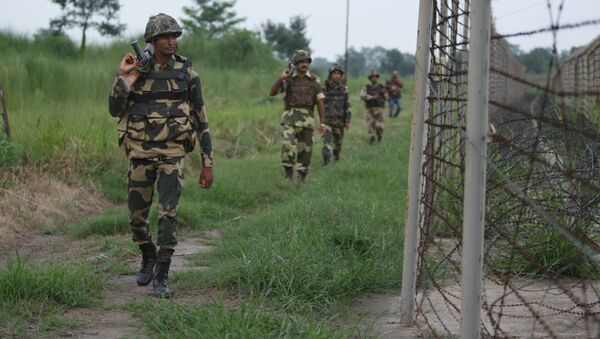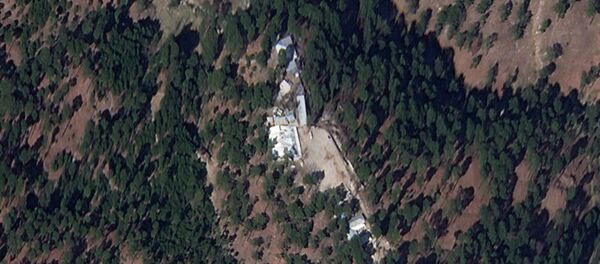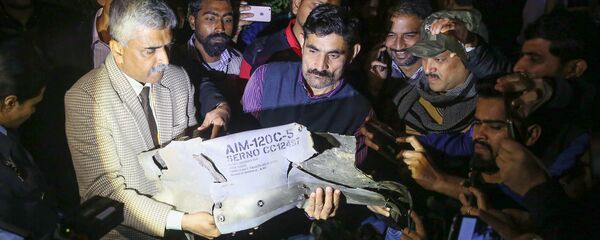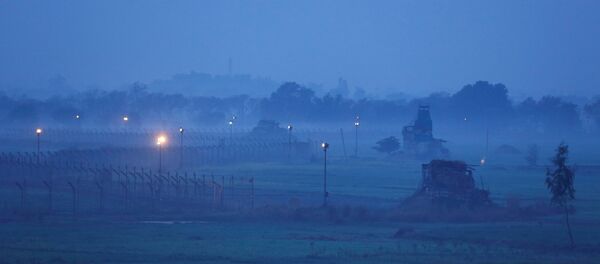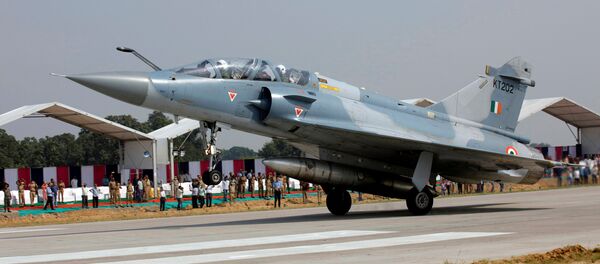Hu Bofeng, Ding Xuezhen, Gu Di — Over 70 years ago, British colonizers turned Kashmir into a powder keg that created decades of turmoil, hostility and conflicts between India and Pakistan.
Angry Land
Melanie, an Indian history teacher and retired principal of a primary school, told the Global Times that the word Kashmir comes from Sanskrit, and literally means "dry land".
"Now this 'dry land' has almost turned into 'angry land,'" her husband Ram, a retired engineer, told the Global Times.
Melanie said Kashmir's history can be traced back to ancient times, and the earliest written records of the region go back as far as 900 years when about 8,000 Sanskrit verses were found to chronicle the history of Kashmir from mythical times until the 12th century. Melanie picked two books off the shelf on Kashmir at random. One was A History of Kashmir by Indian administrator and author Parvez Dewan, born in Srinagar, Kashmir, and the other was Our Moon Has Blood Clots, a memoir by Indian journalist Rahul Pandita.
In Pakistani capital Islamabad, many books about Kashmir can also be found in bookstores. Open a random map of Pakistan in a local bookstore, and the Kashmir territory now administered by India is labelled an "annexed land."
Decades of territorial disputes have resulted in a lack of authoritative statistics on the demographic and geological conditions of Kashmir. Most documents show that the region, with a size of 190,000 square kilometres, has a population of 10 million, with Muslims being the majority. Due to its breathtaking landscape, Kashmir has been dubbed "heaven on Earth" and is home to K2, or Chhogori, the second highest mountain in the world.
According to the 1947 Mountbatten Plan, a blueprint for independence, British India was divided into India and Pakistan, and provinces were partitioned between the two new countries. Kashmir, with over 80 percent of its people being Muslims but its rulers being Indian, became an exception. Although India was in actual control of the area, the state became a source of dispute between India and Pakistan. In 1947, 1965 and 1971, three wars broke out between the two countries over Kashmir. In 1971, the two countries severed diplomatic relations, then resumed them in 1976.
Over the years, three wars and a number of military conflicts have broken out between India and Pakistan, which is rare between countries that became independent after World War II, Wang said.
READ MORE: SCO Best Platform for Defusing India-Pakistan Tension — Ex Russian Envoy
Failed Policy
Since the late 1980s, a widespread armed insurgency against the Indian army had been underway in India-administered Kashmir. While India claims the insurgents are terrorists, Pakistan says they are Kashmir citizens who are fighting for their independence.
"The international community is not prepared to press India on the subject of a Kashmir settlement. This, despite the dispute having triggered three wars between India and Pakistan which are today adjacent nuclear weapons countries," Ashraf Jehangir Qazi, Pakistani diplomat and former head of UN missions in Iraq and Sudan, wrote in Pakistan newspaper Dawn in September 2018. Qazi thinks armed struggle and resistance against illegal military occupation and repression are not terror.
Many Pakistanis share the same view with Qazi on the tensions in India-administered Kashmir. Zamir Ahmed Awan, deputy dean of the Chinese Studies Center of Excellence at the National University of Sciences and Technology in Islamabad, said India's excessive use of violence and long record of human rights violations will make it increasingly difficult for Kashmir people to resolve their issues through peaceful means
and force them to go for armed struggle against India. Awan hopes that the two countries will resolve the Kashmir issue at the negotiating table, and says that India should respond to the olive branch offered by Pakistan.
"India should realize that the military policies over the past decades have failed and will never succeed," he told the Global Times.
The past 70 years have seen wars and negotiations between the two countries on Kashmir. In August 2001, former Indian prime minister Atal Bihari Vajpayee said in his Independence Day address, "The people of Jammu, Kashmir, and Ladakh are tired of violence and bloodshed. They are craving peace." Pervez Musharraf, former president of Pakistan, also said that peaceful means are the only way to solve the Kashmir issue.
READ MORE: India, Pakistan Assert 'Calmness' at Border Amid Revival of Diplomatic Relations
Special Status
Any foreigner wishing to enter Kashmir territory administered respectively by the two governments needs to get a special permit from either India or Pakistan. In early February, the Global Times reporter left from Islamabad, Pakistan and visited Muzaffarabad, capital of the Pakistani territory of Azad Kashmir. By car, the 130-kilometre journey passes by Murree, a resort city of Pakistan.
"Over the last few years, the number of tourists travelling to Murree has increased a lot. Projects by Chinese companies, such as the Neelum-Jhelum Hydropower Plant project in northeast Pakistan, also boosted traffic there. The government has also upgraded the roads," a local driver told the Global Times.
According to recent news footage, the infrastructure of Srinagar, the largest city and the summer capital of the India-controlled state of Jammu and Kashmir, is worse than a lot of Indian cities a Global Times reporter has visited. Over 700 kilometres away from Delhi, and 200 kilometres from Islamabad, Srinagar used to be a tourist destination, but due to the recent crisis, few tourists now visit the city, which is now largely populated by the Indian military.
This article originally appeared on the Global Times website.
